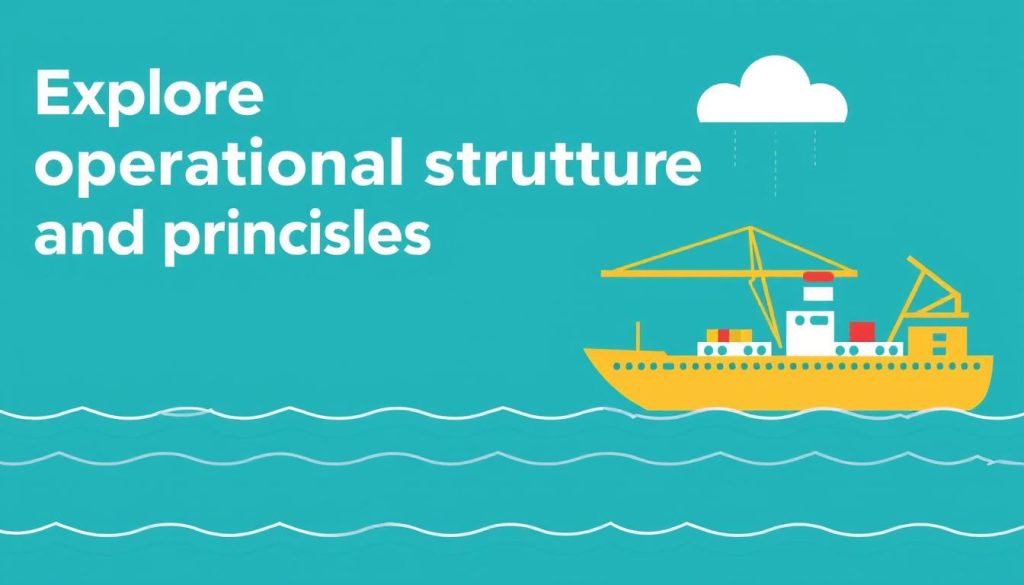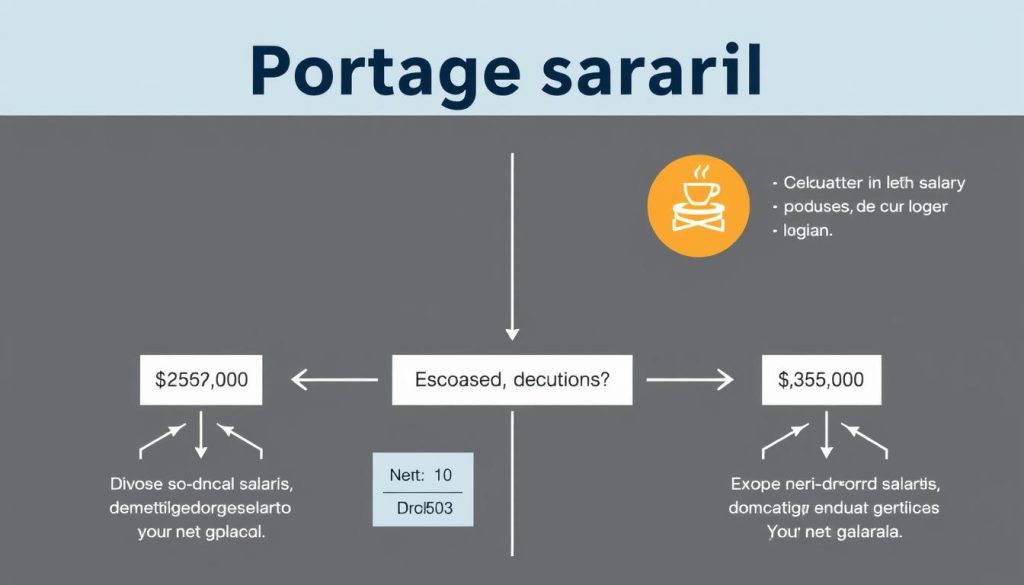As an independent professional, you’re likely no stranger to the challenges of balancing autonomy with security in your career. The concept of portage salarial offers a revolutionary employment model that bridges the gap between traditional employment and freelancing.
Imagine having the freedom to pursue your projects and clients while enjoying the benefits and security of being a salarié porté. This unique arrangement allows you to maintain your independence as a professional while being supported by a société portage or entreprise portage, giving you the best of both worlds.
By understanding how portage salarial works, you’ll discover a secure path that aligns with your professional goals and provides the stability you need without sacrificing your freedom.
Table of Contents
Key Takeaways
- Understand the concept of portage salarial and its benefits for independent professionals.
- Learn how this employment model provides security and stability.
- Discover the legal framework governing portage salarial.
- Explore the advantages of being a salarié porté.
- Find out how to determine if portage salarial is right for your career.
Understanding Portage Salarial: A Unique Employment Model
In the landscape of modern employment, portage salarial stands out as a distinctive model that balances professional autonomy with social protection. This unique arrangement is particularly beneficial for independent professionals seeking stability and security in their careers.
Definition and Legal Framework
Portage salarial is a form of employment that allows professionals to work independently while being employed by a portage company or société de portage. This setup is governed by a specific legal framework that outlines the rights and responsibilities of all parties involved. The legal structure ensures that the salarié porté (carried employee) enjoys the benefits of salaried employment, including social security and unemployment benefits, while maintaining the flexibility to work on various projects for different entreprise cliente (client companies).
The legal framework supporting portage salarial is crucial for its operation. It involves a contrat de travail (employment contract) between the carried employee and the portage company, which includes standard clauses found in any employment contract. This framework provides a secure and regulated environment for professionals to operate within.
The Tripartite Relationship Explained
The portage salarial system operates through a carefully structured tripartite relationship involving the carried employee, the portage company, and the client company. At the heart of this relationship are three essential contracts: the employment contract, the portage agreement, and the mission contract.
- The employment contract between the carried employee and the portage company provides the professional with employee status and outlines the terms of employment.
- The portage agreement allows the carried employee and the client company to agree on the terms of their collaboration, including details about retirement funds and collective agreements.
- The mission contract, drafted by the portage company, specifies the conditions under which the carried employee will execute the service mission for the client company.
| Contract Type | Parties Involved | Purpose |
|---|---|---|
| Employment Contract | Carried Employee and Portage Company | Establishes employment terms and provides employee status |
| Portage Agreement | Carried Employee and Client Company | Outlines the terms of collaboration and mutual responsibilities |
| Mission Contract | Portage Company and Client Company | Specifies the conditions for executing the service mission |
This tripartite structure creates a balanced ecosystem where professionals maintain their independence, portage companies handle administrative tasks, and client companies receive specialized expertise. As noted by experts, « The portage salarial model offers a win-win situation for all parties involved, providing a flexible and secure framework for professional services. »
« The portage salarial model has revolutionized the way independent professionals operate in France, offering them a unique blend of autonomy and security. »
The Evolution of Portage Salarial in France
Since the 1970s, the landscape of portage salarial in France has changed dramatically. This employment model has evolved significantly, shaped by various legislative actions and collective agreements.
Historical Development Since the 1970s
The concept of portage salarial emerged in the 1970s, initially as an innovative approach to employment. Over the years, it has developed into a structured framework. The historical development of portage salarial is marked by the signing of the Collective Agreement by social partners, a significant milestone that secured the rights and protections of carried employees.
Today, portage salarial operates within a well-defined legal framework. This framework has been progressively strengthened through various legislative actions and collective agreements. For more information on the legal aspects of portage salarial and your rights, you can visit our dedicated page.
Current Legal Status and Regulations
The current legal status of portage salarial in France is characterized by a robust regulatory framework. The code travail (labor code) outlines the specific conditions that société portage (portage companies) must meet to operate legally. These regulations ensure that sociétés portage provide appropriate protections and services to the professionals they employ.
The legal framework clearly defines the responsibilities of each party in the portage salarial relationship, creating transparency and security for all involved. Companies must subscribe to financial guarantees to be authorized to operate, providing additional security for carried employees.
The evolution of portage salarial from an innovative concept to a recognized employment option within the French labor market is a result of these regulations. The industry now operates with a high level of transparency and security.
How Portage Salarial Works

Understanding the mechanics of portage salarial is crucial for independent professionals seeking a stable career path. This employment model is designed to offer flexibility and security, making it an attractive option for many.
The Three Essential Contracts
The functioning of portage salarial is based on three key contracts that establish a clear and secure working relationship between the professional, the client company, and the portage company.
The salarié porté (carried employee) signs a service contract with the client, outlining the scope, duration, and price of the mission. Simultaneously, they enter into an employment contract (CDD or CDI) with the société portage (portage company), ensuring they receive the benefits and protections associated with being a salaried employee.
Day-to-Day Operations for Professionals
In the day-to-day operations of portage salarial, the carried employee maintains autonomy in performing their services for the client company. They determine the nature of the mission, its duration, and its price. The société portage invoices the client for the corresponding fees and then establishes a salary statement for the salarié porté.
- The professional can sign a service contract with the client while holding an employment contract with the portage company.
- The carried employee receives a monthly payslip based on their billing, similar to a traditional employee.
- Payment of the professional’s salaire (salary) is conditioned on the Activity Report (CRA) validated by the client.
- This operational structure allows professionals to focus on their core expertise while the portage company handles administrative responsibilities.
The activité (activity) of the professional is thus facilitated, providing a seamless experience that combines the benefits of independence with the security of salaried employment.
Who Can Benefit from Portage Salarial
Understanding who can benefit from portage salarial requires a closer look at the qualifications and experience required for this employment model. The portage salarial system is designed to support professionals who have achieved a certain level of expertise and autonomy in their field.
Qualification Requirements for Professionals
To be eligible for portage salarial, professionals must meet specific qualification requirements. According to Article L1254-2 of the Labor Code and Article 2 of the collective agreement for carried employees (IDCC3219), a professional qualification of at least level III (equivalent to a two-year degree after high school) is required. This qualification ensures that the professional has the necessary skills to analyze problems, develop solutions, and implement them effectively for clients.
The salarié porté must demonstrate the ability to work independently, prospect for clients, and negotiate the terms of their service delivery and rates. This level of autonomy is crucial for success in the portage salarial system.
Minimum Experience and Education Criteria
Since July 1, 2017, professionals must possess at least a level III professional qualification or have at least three years of experience in their sector of activity. These criteria are designed to ensure that professionals have the necessary foundation to succeed in the portage salarial system.
- The combination of education and experience requirements creates a balanced approach that recognizes both formal learning and practical knowledge gained through professional activity.
- These minimum requirements help maintain the quality and credibility of the portage salarial system by ensuring that professionals have the necessary skills and expertise.
- The statut salarié offered by portage salarial provides a secure framework for professionals to operate within, allowing them to focus on their activité.
By meeting these qualification and experience requirements, professionals can benefit from the portage salarial system, enjoying the benefits of being a salaried employee while maintaining their independence.
Ideal Candidates for Portage Salarial
Ideal candidates for portage salarial include those seeking flexibility and security in their careers. This employment model is particularly suited for individuals who value independence but also desire the benefits associated with being an employee.
Freelancers and Independent Consultants
Freelancers and independent consultants often find portage salarial attractive as it allows them to maintain their independence while enjoying the security of a salary and social benefits. This arrangement enables them to focus on their work without the administrative burdens associated with running a business.
Career Changers and Professionals in Transition
For individuals changing careers or in transition, portage salarial provides a safe and flexible way to navigate new fields or industries. It offers the opportunity to build new skills and networks without the immediate pressure of establishing a company.
Retirees Seeking Continued Professional Activity
Retirees who wish to continue working part-time or on specific projects can benefit from portage salarial. It allows them to remain active in their profession, sharing their experience and knowledge while managing their workload and maintaining a balance with their retirement.
For more information on how retirees can benefit from portage salarial, visit this resource.
Young Graduates Entering the Professional World
Young graduates can leverage portage salarial as a stepping stone into the professional world. It provides them with the opportunity to gain experience across multiple projects, build their professional network, and develop their skills in a structured environment.
The benefits for young graduates include the ability to work on diverse projects, enhance their portfolio, and connect with various clients and professionals in their field. This experience can be invaluable in securing future employment opportunities.
| Category | Benefits | Key Features |
|---|---|---|
| Freelancers and Independent Consultants | Flexibility, Salary, Social Benefits | Independence with Employee Benefits |
| Career Changers and Professionals in Transition | Safe Transition, Skill Development | Flexibility in Career Transition |
| Retirees | Continued Professional Activity, Work-Life Balance | Part-time Work, Project-Based |
| Young Graduates | Diverse Project Experience, Network Building | Structured Environment for Career Start |
Eligible Professions Under Portage Salarial
Understanding which professions are eligible for portage salarial is crucial for independent professionals considering this employment model. Portage salarial offers a unique framework that combines the benefits of being an employee with the flexibility of independent work.
Intellectual and Consulting Services
Portage salarial is particularly suited for professionals providing intellectual and consulting services. This includes a wide range of activities such as IT consulting, management consulting, engineering services, and more. These professions are characterized by their focus on providing expertise and solutions to clients, often on a project basis.
The flexibility of portage salarial allows these professionals to manage their workload and client base effectively, while enjoying the security of being employed. This includes access to social security benefits, unemployment insurance, and other protections.
Professions Excluded from Portage Salarial
Despite its flexibility, portage salarial is not available to all professions. Certain categories are explicitly excluded from this employment model. For instance, personal services cannot be performed under a portage salarial contract, as these activities fall under different regulatory frameworks in France.
- Regulated liberal professions such as lawyers, doctors, accountants, architects, notaries, pharmacists, and nurses are ineligible for portage salarial.
- Commercial activities involving buying and reselling products are excluded from the portage salarial framework.
- Professions that require specific professional regulations or licenses are generally not eligible.
Understanding these limitations is essential for professionals considering portage salarial to determine whether their specific activity qualifies under the current regulatory framework.
| Eligible Professions | Ineligible Professions |
|---|---|
| IT Consulting | Lawyers |
| Management Consulting | Doctors |
| Engineering Services | Accountants |
| Training and Coaching | Commercial Activities |
Financial Aspects of Portage Salarial

The financial intricacies of portage salarial are key to its appeal for many professionals. This employment model is designed to provide a secure financial foundation for independent workers.
Understanding Your Gross and Net Salary
In portage salarial, understanding the difference between gross and net salary is crucial. The gross salary includes various components such as paid leave allowances and a business development premium. For instance, the minimum gross salary cannot be less than €2,517.13, which includes a 5% business development premium.
The net salary, on the other hand, is what the professional takes home after deductions. It’s essential to understand these deductions to manage your finances effectively.
Management Fees and Their Justification
One of the financial aspects to consider in portage salarial is the management fees charged by the portage company. These fees cover various services such as administrative support, professional liability insurance, and social security contributions.
The justification for these fees lies in the comprehensive support they provide, enabling professionals to focus on their work without administrative burdens.
Minimum Salary Requirements
Portage salarial has specific minimum salary requirements to ensure that professionals receive fair compensation. As per recent regulations, the minimum gross salary cannot be less than 69% of the 2017 social security ceiling.
This requirement includes a financial reserve of 10% of the base salary from the last mission to finance periods between assignments, ensuring financial stability.
Understanding these financial aspects is vital for professionals to navigate the portage salarial system effectively and ensure they meet both regulatory requirements and their personal income goals.
The Key Benefits of Portage Salarial

Portage salarial has emerged as a preferred choice for professionals seeking to balance autonomy with security. This employment model offers a range of benefits that cater to the needs of independent professionals.
Social Security and Unemployment Benefits
One of the significant advantages of portage salarial is the access to social security and unemployment benefits. As a salarié porté, professionals are entitled to the same rights as regular employees, including health insurance, retirement benefits, and unemployment insurance. This provides a safety net that is often lacking for independent contractors.
« The security provided by portage salarial is invaluable, » as it allows professionals to manage their career risks effectively.
Professional Liability Insurance Coverage
Another key benefit is the inclusion of professional liability insurance coverage. The société portage typically provides this insurance, which protects the professional against potential claims related to their work. This not only safeguards the professional’s financial stability but also enhances their credibility with clients.
For instance, in the event of a dispute or claim, the insurance coverage can mitigate the financial impact, allowing the professional to continue their work without undue stress.
Administrative Support and Time Savings
The administrative support provided by the portage salarial company is a significant advantage. Professionals are freed from administrative tasks such as invoicing, client follow-up, accounting, and various declarations to public organizations. This gestion administrative simplifiée enables them to focus on their core expertise, thereby increasing productivity and potentially their income.
- The administrative support creates significant time savings for professionals.
- Carried employees are freed from administrative constraints.
- This administrative simplification represents a major advantage for professionals.
- The portage company handles all interactions with tax authorities and social security organizations.
By reducing the administrative burden, portage salarial allows professionals to concentrate on their activité, enhancing their overall work experience and reducing the complexity associated with managing frais and other administrative tasks.
Potential Drawbacks to Consider
While portage salarial offers numerous benefits, it is essential to consider its potential drawbacks. Understanding these limitations is crucial for independent professionals to make informed decisions about their career paths.
Management Fees Impact on Earnings
One of the significant drawbacks of portage salarial is the management fees charged by the portage company. These fees can range between 2% to 10% of the gross turnover, depending on the company and the services provided. For instance, a higher fee might be justified by additional services such as administrative support, professional liability insurance, and career coaching. However, these fees directly impact the net earnings of the salaried contractor.
To illustrate the impact, let’s consider a table that compares the gross turnover to net earnings based on different management fee percentages:
| Gross Turnover (€) | Management Fee (%) | Management Fee (€) | Net Earnings (€) |
|---|---|---|---|
| 5,000 | 5% | 250 | 4,750 |
| 5,000 | 10% | 500 | 4,500 |
Limitations on Eligible Activities
The portage salarial system is designed for intellectual services and consulting activities. However, it excludes several professional categories and business models. For example, commercial activities involving the purchase and resale of goods are not eligible. Additionally, regulated professions such as lawyers, doctors, accountants, and architects cannot operate through portage salarial.
Some key limitations include:
- Exclusion of commercial activities involving goods resale
- Regulated professions are not eligible
- Personal services are excluded
- Activities that span multiple categories may face challenges
These limitations can be particularly challenging for professionals whose activities span multiple categories or who wish to evolve their business model over time. In such cases, a hybrid approach might be necessary, using portage salarial for certain aspects of their work while adopting different structures for activities that fall outside the eligible categories.
Client companies must also adhere to specific regulations to avoid penalties. For instance, failure to comply with the conditions authorized by the Labor Code or the absence of a commercial contract within two working days following the start of the service can result in a fine of €3,750. In cases of recurrence, the fine can increase to €7,500.
Portage Salarial Companies: Their Role and Services

Portage salarial companies act as a bridge between independent professionals and client companies, providing a secure and legally compliant framework for their collaboration. These companies play a vital role in the French employment landscape, supporting the growth of independent work arrangements.
Services Provided by Portage Companies
Portage salarial companies offer a range of services designed to support both the carried employees and the client companies. These services include:
- Contract management: Handling the contractual arrangements between the carried employee, the portage company, and the client.
- Payroll management: Ensuring timely and accurate payment to the carried employee, along with the necessary social contributions.
- Administrative support: Providing administrative assistance to carried employees, allowing them to focus on their core work.
The portage salarial model relies heavily on these services to maintain its integrity and ensure compliance with French labor laws.
Legal Obligations of Portage Companies
Portage salarial companies operate under strict legal obligations designed to protect both the carried employees and the client companies. These obligations include:
- Subscribing to a financial guarantee to ensure they can meet their obligations to carried employees.
- Maintaining strict compliance with labor laws, including proper employment contracts and accurate payroll management.
- Adhering to regulations to avoid penalties, which can include fines of €3,750 for various breaches, doubling to €7,500 in case of repeated violations (cas récidive).
By understanding the role and legal obligations of société portage or entreprise portage, professionals can better navigate the portage salarial system and enjoy its benefits while minimizing potential risks.
How to Choose the Right Portage Salarial Company
The process of selecting a suitable société de portage involves careful consideration of several key factors.
Key Selection Criteria
When evaluating a portage salarial company, several essential criteria must be considered.
Firstly, management fees are a critical factor, but not the only one. Some companies may charge additional fees, while others may offer advantageous policies on professional expenses and VAT restitution, which can impact your net salary.
Moreover, the presence of employee savings plans (such as PEE and PERCO) can also optimize your remuneration.
The level of support and guidance provided is another crucial aspect, including personalized advice, training, and legal and accounting services.
Red Flags to Watch For
When evaluating portage salarial companies, professionals should be cautious of several red flags.
- Unusually low management fees may indicate reduced services or hidden charges.
- A lack of transparency regarding the financial structure and management fee calculations should raise concerns.
- The absence of a financial guarantee or insufficient guarantee amounts may put your salary at risk.
- Poor responsiveness during the initial inquiry process often reflects the level of service you’ll receive.
- Negative reviews or complaints from current or former employees, particularly regarding payment delays or administrative errors, should be carefully considered.
By being aware of these factors and carefully evaluating potential entreprise de portage, professionals can make an informed decision when choosing a société de portage.
Client Companies and Portage Salarial

Client companies can significantly benefit fromportage salarialby leveraging the expertise of carried employees. This employment model allows businesses to access specialized skills for specific projects without the long-term commitment of hiring permanent staff.
Benefits for Client Companies
Client companies benefit fromportage salarialin several ways. Firstly, they can access a wide range of specialized skills without the need for lengthy recruitment processes. This flexibility is particularly valuable for projects requiring specific expertise that may not be available in-house. Additionally, client companies can negotiate the terms of the service, including the duration and cost, directly with the carried employee, providing a high degree of control over the project’s scope and budget.
The benefits can be summarized as follows:
- Access to specialized skills on a project basis
- Flexibility in project duration and budgeting
- Direct negotiation with carried employees for service terms
Legal Obligations and Potential Penalties
Whileportage salarialoffers numerous benefits, client companies must also be aware of their legal obligations to avoid potential penalties. According to French labor laws, client companies are required to establish a commercial contract with thesociété de portagewithin two working days of the service commencement. This contract must detail the terms agreed upon between the carried employee and the client company.
Failure to comply with these regulations can result in significant penalties. For instance, non-compliance with the conditions authorized by the Labor Code, absence of a commercial contract, or failure to adhere to the contract’s terms can lead to fines of €3,750. In cases ofcas récidive(repeated offenses), this fine can increase to €7,500.
| Obligation | Penalty for Non-Compliance |
|---|---|
| Establishing a commercial contract within 2 working days | €3,750 (up to €7,500 in case of récidive) |
| Adhering to Labor Code conditions for portage salarial | €3,750 (up to €7,500 in case of récidive) |
By understanding and adhering to these legal obligations, client companies can ensure a smooth and beneficial collaboration with carried employees throughportage salarial.
Finding Missions as a Salaried Contractor

The ability to find and secure missions is what drives the success of a salaried contractor under portage salarial. As a salarié porté, your mission is to leverage your skills and network to secure projects that align with your expertise.
To achieve this, it’s essential to employ effective strategies. Here are some key approaches:
Effective Prospecting Strategies
Successful salariés portés actively engage in prospecting activities to identify potential clients and projects. This involves developing a strong professional network through industry events, social media engagement, and professional associations.
By building relationships and establishing a reputation, you can create opportunities for referrals and direct client connections, which are crucial for securing missions.
Leveraging Networks and Portage Company Resources
Many société portage companies offer valuable resources, including training programs on consulting skills, mission search strategies, and commercial negotiation techniques. These resources can enhance your business development capabilities and help you navigate the complexities of portage salarial.
Additionally, the extended network of the société portage itself can be a significant asset, potentially providing access to clients and opportunities that would be difficult to reach independently. Participating in collaborative projects with other consultants from the same portage company can also open doors to larger missions that require complementary expertise.
International Aspects of Portage Salarial
The international aspect of portage salarial offers a unique solution for professionals working across borders. This arrangement allows salarié porté to maintain their French social security and tax regime while undertaking international missions.
As the world becomes more interconnected, the need for professionals to engage in international activité has grown. Portage salarial provides a structured framework that supports this trend.
Working with Foreign Clients
Through international portage salarial, professionals can work with foreign clients without changing their social security and tax regime. This is achieved through a process known as « détachement, » where the professional is detached to work abroad without altering their French social protections.
- Maintain French health insurance, unemployment benefits, and retirement contributions.
- Handle complex administrative requirements related to international work authorizations.
- Ensure compliance with French social security regulations while working abroad.
Performing Missions Abroad
For professionals undertaking missions abroad, portage salarial provides the necessary security and support. The portage company manages the administrative tasks, allowing professionals to focus on their work.
As noted by experts, « En optant pour le portage salarial international, qui implique un « détachement » sans changement de régime social et fiscal, ils conservent leurs droits auprès de l’Assurance maladie, l’allocation chômage, les cotisations retraite, etc. »
Comparing Portage Salarial with Other Professional Statuses
Portage salarial stands out as a unique employment model that offers security and flexibility, distinct from other professional statuses. This distinction is crucial for independent professionals who are considering their options.
Portage Salarial vs. Micro-Entrepreneur Status
When comparing portage salarial to micro-entrepreneur status, several key differences emerge. Micro-entrepreneur status is characterized by its simplicity and low administrative burden, making it an attractive option for solo entrepreneurs. However, it lacks the social protections and professional liability insurance that are inherent to portage salarial. For instance, a micro-entrepreneur must personally manage their administrative tasks and social security contributions, whereas a salaried contractor under portage salarial benefits from the support of the portage company in these matters.
A comparison of the two statuses can be summarized as follows:
| Criteria | Portage Salarial | Micro-Entrepreneur Status |
|---|---|---|
| Administrative Support | Provided by the portage company | Managed by the entrepreneur |
| Social Protections | Included, as part of salaried employment | Must be arranged by the entrepreneur |
| Professional Liability Insurance | Typically included | Optional, at additional cost |
Portage Salarial vs. Creating Your Own Company
Creating your own company offers the potential for greater control and long-term benefits, but it involves significant initial investment and administrative responsibilities. In contrast, portage salarial allows professionals to begin working immediately with minimal startup costs and without the need to manage complex administrative processes. As noted by a professional transitioning to portage salarial, « The ability to focus on my core expertise without being bogged down by administrative tasks was a game-changer. »
- Portage salarial provides immediate access to professional liability insurance and social protections.
- It allows professionals to test a business concept or market without significant financial commitments.
- For many, it serves as a stepping stone toward eventual company creation, providing valuable experience and a client base.
Ultimately, the choice between portage salarial and other professional statuses depends on individual goals, risk tolerance, and the need for administrative support.
Conclusion: Is Portage Salarial Right for You?
As you consider your career path, it’s essential to evaluate whether portage salarial aligns with your professional aspirations and financial goals. This employment model offers a unique blend of independence and security, making it an attractive option for many professionals.
For those who value the freedom to choose their clients and missions while enjoying the security of employee status, portage salarial provides a compelling middle path. The support structure offered by société portage or entreprise portage companies handles administrative tasks, allowing you to focus on your core activité.
Professionals in transition, whether entering the job market, changing careers, or nearing retirement, may find portage salarial particularly beneficial. It offers a flexible framework that supports professional evolution and provides the necessary security during periods of change.
The financial aspects of portage salarial work best for those who can command rates that accommodate management fees and social contributions while maintaining a satisfactory net income. As a salarié porté, you will need to consider these factors when evaluating the suitability of this employment model.
Ultimately, portage salarial represents a modern solution to the evolving nature of work, offering a secure path for independent professionals who seek both autonomy and protection. We encourage you to consult with portage salarial specialists to determine if this innovative employment model aligns with your professional journey.
FAQ
What is the main benefit of the tripartite relationship in portage salarial?
The tripartite relationship between the independent professional, the client company, and the portage company provides a secure and stable framework for all parties involved, allowing for a clear division of responsibilities and benefits.
What are the essential contracts involved in portage salarial?
The three essential contracts are the contract between the independent professional and the portage company, the contract between the portage company and the client company, and the contract governing the mission or project.
What are the qualification requirements for professionals to be eligible for portage salarial?
Professionals typically need to have a certain level of experience and education in their field, although specific requirements may vary depending on the portage company and the type of activity.
How do management fees work in portage salarial?
Management fees are charges levied by the portage company to cover their services, including administrative support, professional liability insurance, and other benefits. These fees are typically a percentage of the professional’s gross salary.
What is the minimum salary requirement for salaried contractors under portage salarial?
The minimum salary requirement varies, but it is generally based on the social security minimums and other regulatory requirements.
How does portage salarial compare to being a micro-entrepreneur?
Portage salarial offers more security and benefits, such as social security and unemployment benefits, whereas being a micro-entrepreneur involves more risk but potentially higher earnings.
Can I work with foreign clients as a salaried contractor under portage salarial?
Yes, it is possible to work with foreign clients, but you may need to comply with additional regulations and tax requirements.
What are the key benefits of portage salarial for client companies?
Client companies benefit from the flexibility of working with independent professionals without the administrative burden, and they are protected from potential employment law risks.
How do I choose the right portage company for my needs?
When choosing a portage company, consider factors such as their reputation, the services they provide, their management fees, and their experience working with professionals in your field.
What are the potential drawbacks of portage salarial that I should consider?
Potential drawbacks include management fees, limitations on eligible activities, and the need to comply with the portage company’s requirements and regulations.





